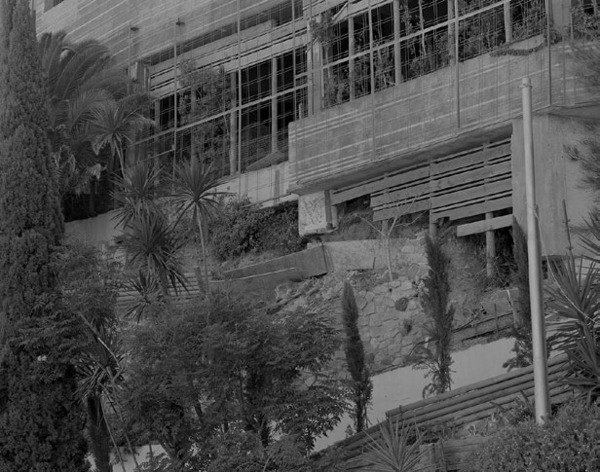Julian Faulhaber
dal 26/4/2013 al 31/5/2013
Segnalato da
26/4/2013
Julian Faulhaber
L.A. Galerie Lothar Albrecht, Frankfurt
Catalogue. With his photos, the artist takes us on a journey he began 15 years ago, when he was working as an assistant photographer in advertising on the coast of Cape Town, South Africa.

For ten years, he kind of kept us in the dark, only adding fuel to speculations. We never really knew where we were at, with the motifs so
abstract, the sites so neutralized, the spaces so clean that all life
seemed to have disappeared from them, if there had ever been any.
Needless to say, we never encountered any people in these photographic works, only deserted, lifeless terrain – or so it seemed.
Virginal space, untouched, so nice and smooth, and so frighteningly
unhuman. So much cleanliness and polished surface, formed in such
perfect shape that only the advertising industry can rival it. A world
without flaws or scratches or filth, ‘photoshopped reality’ – or so it
seems, because actually, none of the motifs was artificially staged,
none of the sites cleaned up beforehand or cast in special lighting, be
it the interiors, the nightly street scenes, or the yearning gas stations,
all perfect backdrops waiting for stories to happen but having none to
tell themselves.
Julian Faulhaber photographs what he sees, nothing is staged as in the
advertising world. This is what makes his previous work so implausible
– he finds sites, scenes, details, everyday moments which we never
see, at least not in the form he captures them.
For ten years, he kept us at a distance; a distance to his places, to
certainty, reliable insight and concrete background information on his
motifs. Through this sort of blank space he has provoked the imagination, allowing room for both contemplative silence and wild speculation.
With the Catalogue exhibition, Faulhaber lets us look behind the scenes
for the first time and shows everything. He takes us on a journey he
began 15 years ago, when he was working as an assistant photographer
in advertising on the coast of Cape Town, South Africa.
“Back then I was right in the middle of it, now I returned as a tourist. I
took out my camera and photographed what I saw – scenes of every-
day life, restaurants being opened, men cleaning their front yards and
painting their houses, construction sites and shooting sets of the advertising industry. They especially like to photograph catalogue material
there. I did not want to portray the people and their emotions, however,
but view everything as products. Thus, I deliberately stayed away to
guard myself against too much intimacy.”
Keeping a distance. View things as abstractly as possible, not be
voyeuristic, fight nothing, love nothing, no compassion, no empathy.
Whatever is depicted is meant to be exemplary, everything is inter-
changeable, schematic and follows the same patterns.
That is how
advertising works, as well as much of the rest of the world. The images
produced are faceless and soulless; anybody can slip into them as they
please. They represent a beautiful, empty, perfect world, one already
evoked in Julian Faulhaber’s earlier LDPE works. They would serve as
absolute, ideal projection screens if with all their perfection they did
not create that silent, nagging, spine-chilling sense that something is
not right.
This doubt exactly is the starting point of an expedition by the viewer,
who much like a detective tries to fill the seemingly abstract imagery
with something concrete, vital, personal, only to realize that the world
depicted here is not one we would want to live in.
Opening reception: Saturday April 27th from 7 pm
L.A. Galerie Lothar Albrecht
Domstrasse 6 D-60311, Frankfurt
Hours: Saturday April 27th from 7 pm
Free Admission



